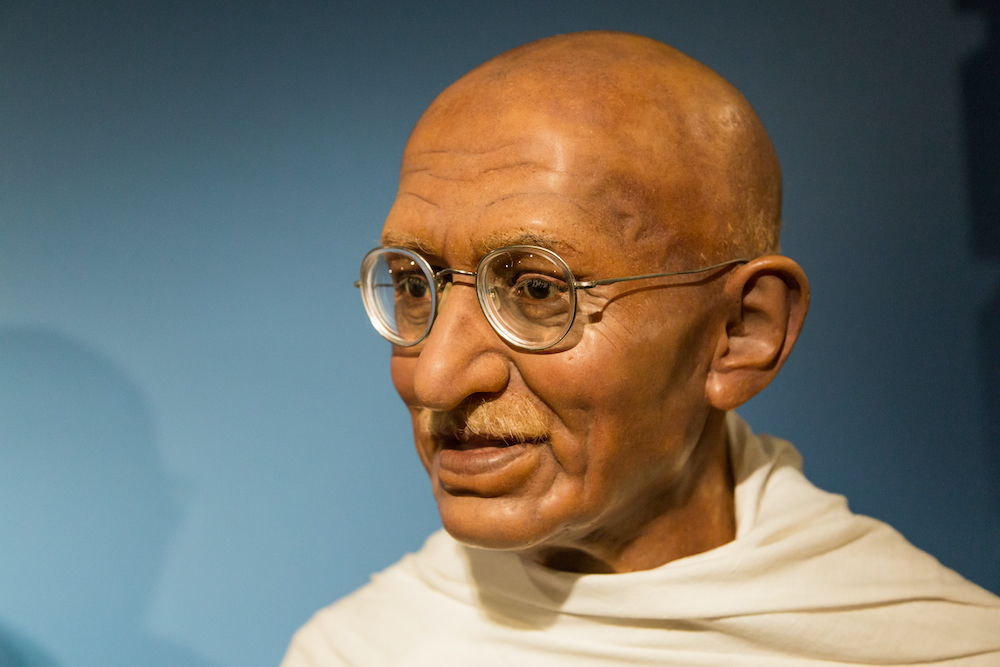Mahatma Gandhi: one of the most quoted person on the Internet
Even if you know nothing about world history, you’ve heard about Mahatma Gandhi. Let’s delve into the roots of his legacy, from which millions still draw inspiration.

Mahatma Gandhi overcame his shyness to become the leader of his people
A role model for generations, the quintessential Indian leader, relentless freedom fighter, philosopher, spiritual guru, lawyer, politician, social activist — there were several facets to Mahatma Gandhi’s personality which made him the person he was. Indians lovingly call him “Father of the Nation,”—and the entire world recognizes the greatness of his personality and achievements.
Even if you know nothing about world history, you surely haven’t missed his quotes, which are widely prevalent on the Internet. It is virtually impossible to tally the number of quotes exactly, so there are no definite statistics as to who is the most quoted person—but Gandhi is surely in contention for the top spot. Most of the world calls him Mahatma, although it is not his given name. Mahatma is an honorific title that means “great soul” in Sanskrit.
Of course, his legacy goes far beyond inspirational quotes on the Internet. He was the leader of India’s struggle for unification and independence from Britain, and fought for social change. However, his early years saw some difficulties he had to overcome.

Mohandas Gandhi was born in 1869 to a chief minister’s family in a small state of Porbandar in western India, which was a vassal of the British Empire. Since his childhood, Mohandas had been a deeply spiritual person. In 1888, when he moved to London to study law, he joined the London Vegetarian Society, influenced by the promise he made to his wife and mother—to abstain from alcohol, meat, and women.
Growing up as a quiet boy, he would struggle to overcome his shyness. When the Society discussed on whether to expel one of its members, Gandhi prepared some points to this person’s defense—however, he could not bring himself to read them publicly. He ended up asking his friend to read out his arguments aloud.

Having finished his education in 1891, Gandhi returned to India and made efforts to become an established lawyer in Bombay. However, he was unsuccessful because he couldn’t speak dynamically in the court and cross-examine witnesses.
In the end, these struggles made Gandhi stronger, as he trained to be more eloquent and confident. However, they also made him more relatable and compassionate to others—and these are the qualities many praise him for today.
Read on to follow Mahatma Gandhi’s biography further: where he spent 21 years outside of India and the core principles of his philosophy.
He faced racial injustice personally and fought against it
Seeing his lack of success in the legal field, an Indian businessman offered Gandhi a contract for a position in another British colony—Natal, in South Africa. As Gandhi moved there in 1893, he witnessed rampant racial discrimination directed towards all colored people. In his early years, Gandhi shared racist views and attitudes towards Black people—unfortunately, such things were quite common and perceived as normal in the British Empire. However, he decisively outgrew his prejudice later in life.
He himself got into trouble several times—once, he was thrown out from a train when he declined to leave from the first-class. These incidents deeply affected Gandhi and motivated him to fight against racial discrimination. In his 21-year-long stay in South Africa, Gandhi rebelled against the widespread racism of the time.
